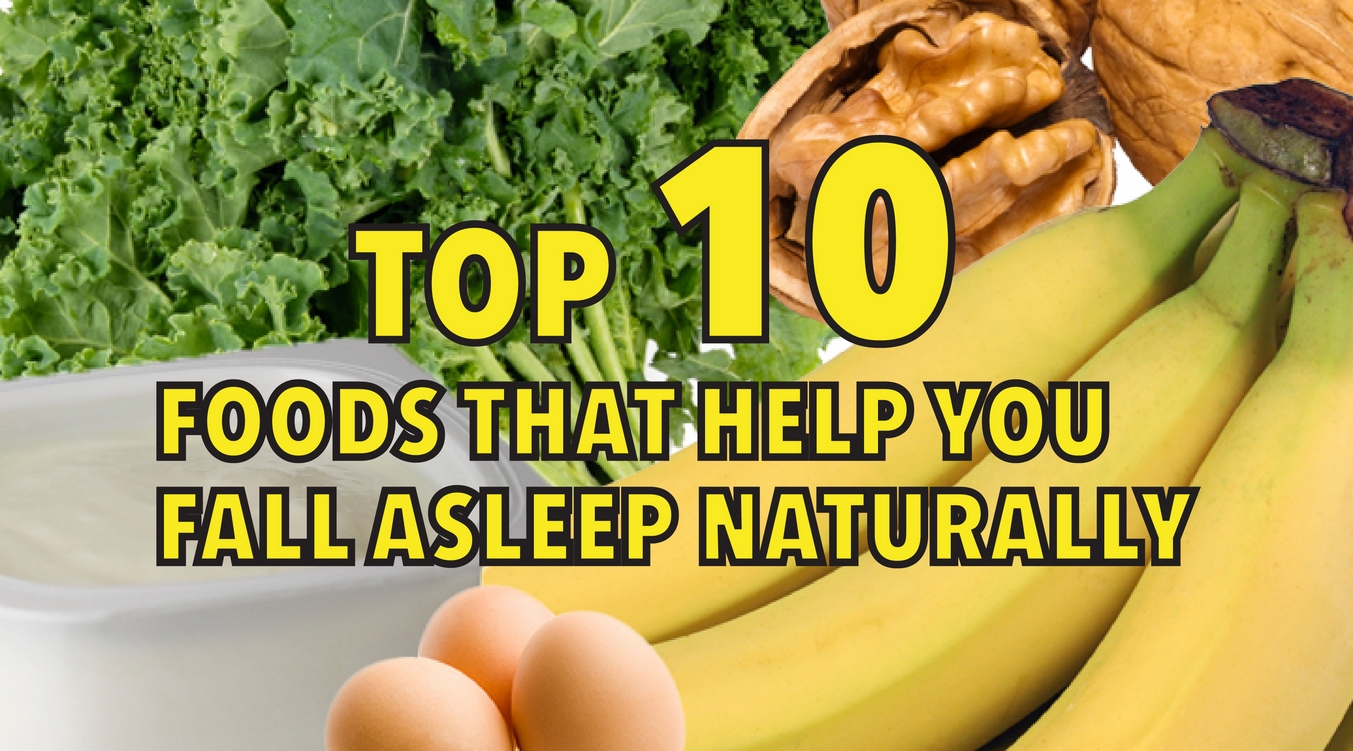Top 10 foods that help you fall asleep naturally
10/05/2015 / By Greg White

Has sleep been eluding you lately? You’re not alone. More than 50 million Americans don’t get enough sleep. There are many reasons for insomnia, ranging from work-related stress to lower back pain. More than often, however, irregular sleeping patterns are caused by poor dietary habits. Many people resort to sleeping pills in an effort to fall asleep. Yet these medications often leave you feeling just as tired as if had you not fallen asleep anyway. The good news? You can help restore your sleep schedule simply by incorporating these foods into your diet. Here are 10 foods that will help you fall asleep naturally.
Walnuts
Walnuts are rich in vitamin B6, a water-soluble vitamin which provides tryptophan to the body. Tryptophan is an essential amino acid, meaning it cannot be made by the human body. It is widely known as a muscle relaxant too. The vitamin B6 in walnuts helps convert tryptophan into the hormones serotonin and melatonin, both of which help regulate the body’s sleep cycles. Specifically, melatonin becomes active at night and helps the body calm down by reducing certain non-vital metabolic functions. A study conducted by the University of Texas found that walnuts are one of the few foods that contain melatonin.(1,2)
Almonds
Almonds contain magnesium, which is an essential mineral needed for inducing and sustaining human sleep. Magnesium also helps relax muscle fibers, thereby inducing sleep. The Journal of Orthomolecular Medicine states that low levels of magnesium are essential to human sleep. In addition, almonds are rich in protein, which can help maintain stable blood sugar levels. A stable blood sugar level is needed to keep your body in the rest position. Having just a tablespoon of almond butter or a couple of soaked almonds before bedtime can help ensure a healthy sleep. (3)
Bananas
Bananas have dual benefits for people who are sleep-deprived: They contain both potassium and magnesium. These minerals are muscle relaxants. Their soothing action on the tissue acts as a sleep inducer. The magnesium present in the fruit has other benefits as well. It can help alleviate muscle cramps and restless leg disorder, both of which can seriously impair a healthy night’s sleep. Bananas are rich in vitamin B6 too, which converts tryptophan into serotonin and melatonin, both of which can help calm nerve fibers in the brain. Another perk is that they are incredibly delicious. You can eat bananas whole or blend them into smoothie two hours before bed in order reap their sleep-inducing benefits.(4)
Oatmeal
Oatmeal as a bedtime snack seems unconventional until you realize that it contains potassium, calcium, magnesium, silicon and phosphorus, all of which are known for their sleep benefits. Oats naturally have high amounts of melatonin. Make sure to not add too much sugar to your oatmeal, though. Here’s a tip: Dress up your bowl of oatmeal with almonds, walnuts and bananas to get a stronger sleep-inducing snack.(5)
Eggs
Eggs are rich in protein. Protein-rich foods are recommended for people who have difficulties sleeping. High-protein foods, like eggs, help indirectly reduce carb cravings. The problem with carbohydrates is that they give the body too much sugar, which swings the body’s metabolic processes into action. The body then sets out to metabolize the sugar. Shortly after falling asleep, the sugar level drops down to a low level, which can give you hunger pains in the middle of the night. Hence, avoid carbs if you enjoy a bedtime snack. Instead, go for hard-boiled eggs.(6)
Cherry juice
Juice from red cherries is a good option for people afflicted by insomnia. Tart cherries are the best for this, since they can trigger the production of melatonin. This has been extensively studied by researchers from the Universities of Pennsylvania and Rochester. If you are averse to cherry juice, you can eat cherries in their natural form. Eating a bowl of cherries before bed has almost the same sleep-inducing effects as cherry juice.(7)
Yogurt
Yogurt and other dairy products are unconventional sleep inducers. While most of the other names on this list contain tryptophan, yogurt does not. Instead, yogurt contains generous amounts of calcium. Calcium helps relieve stress and is a muscle-relaxant. It also has calming and soothing effects on neurons, which aids in sleeping well. A bowl of yogurt once a day may help people with chronic sleep problems. In addition, it can give people a restful sleep free from undue stresses.(8)
Fish
Several fish contain high amounts of vitamin B6 and tryptophan, including tuna, salmon, cod, shrimp and halibut. Vitamin B6 helps convert tryptophan into the sleep-inducing hormones melatonin and serotonin. However, not all fish are equally healthy. You should look at which fish are included in your diet. If you eat any of the listed fish about once every two days, it could help you cope with your sleep-related issues, as well as provide other health benefits. For instance, the Pacific cod can aid the body’s metabolic functions, like digestion.(9)
Jasmine rice
If you are unable to sleep, jasmine rice can help. In fact, all forms of white rice rank high on the glycemic index, which is good for inducing sleep. Nevertheless, a study published in the American Journal of Clinical Nutrition revealed that people who regularly eat jasmine rice fall asleep faster than those who eat other long-grain, low-glycemic varieties. A possible reason jasmine rice may help you fall asleep quickly is because it causes the pancreas to produce high levels of insulin. The insulin helps metabolize sugar, which reduces the restlessness that occurs after a meal. Also, jasmine rice increases the ratio of tryptophan in comparison to other amino acids. Tryptophan, in turn, increases the production of the sleep-inducing hormone melatonin, which can help you fall asleep faster.(10)
Kale
The health benefits of green leafy vegetables, like kale, are well documented by several health professionals around the world. One of these benefits is restful sleep. Kale is an ample source for several vitamins and minerals that help you sleep peacefully, most notably calcium and vitamin B6. These trigger the conversion of tryptophan into serotonin and melatonin, both of which help you sleep. Kale is not the only leafy vegetable with this benefit; other sleep-inducing leafy greans include spinach, mustard greens and lemon balm.(11)
Scientists do not know why humans need to sleep. What scientists do know is that sleep plays an integral role in our overall physiological and psychological well-being. If you’re not getting enough sleep, tackle the problem by the roots with these sleep-inducing foods.
Sources include:
(2) UTHSCSA.edu
(3) TreeHugger.com
(4) LiveStrong.com
(6) WestDealShul.org
(7) RD.com
(8) LiveStrong.com
(9) EatingWell.com
(10) EatingWell.com
(11) EverGreenHealth.com
Submit a correction >>
Tagged Under:
functional foods, melatonin, nutrition, serotonin, sleep, tryptophan
This article may contain statements that reflect the opinion of the author
RECENT NEWS & ARTICLES
COPYRIGHT © 2017 TOP 10 GROCERY SECRETS





















